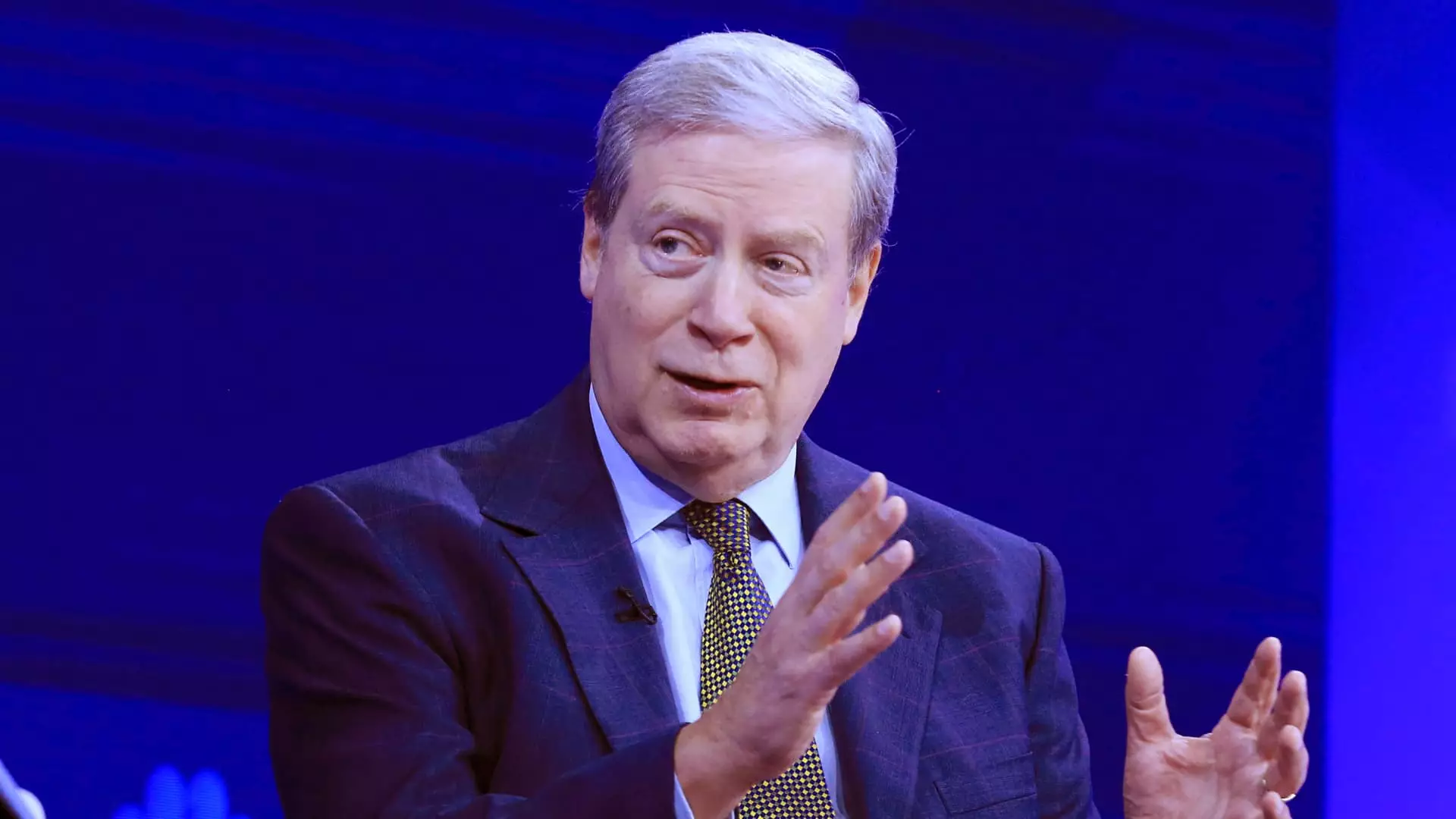The recent re-election of Donald Trump has sent ripples across financial markets, invigorating both investor enthusiasm and corporate confidence. Billionaire investor Stanley Druckenmiller, an emblematic figure in the investment community, succinctly reflects this sentiment in his recent statements. With decades of experience in navigating tumultuous economic waters, Druckenmiller expresses a cautiously optimistic outlook, encapsulating the duality of current market conditions.
Stanley Druckenmiller’s assertion that the political landscape has dramatically shifted from an “anti-business administration” to one favoring economic growth resonates with many market watchers. He noted that conversations with CEOs reveal a blend of relief and excitement—a sentiment fueled by the prospect of tax cuts and deregulation promised by the Trump administration. Such discussions underscore a fundamental aspect of market psychology: the “animal spirits,” a term popularized by economist John Maynard Keynes, suggesting that human emotions drive investment behavior and market outcomes.
This renewed optimism, as evidenced by a staggering 6% surge in the S&P 500 following Trump’s victory, highlights a significant escalation in risk appetite among investors. Companies involved in banking, energy, and emerging technologies, particularly in artificial intelligence, stand to benefit immensely. However, while the markets appear bullish, Druckenmiller’s warning of elevated bond yields adds a layer of complexity to this narrative.
Druckenmiller’s approach to the current market conditions is intriguing. While he perceives a thriving economy on the horizon, he simultaneously harbors reservations about the trajectory of the stock market. The relationship between economic performance and bond yields is a nuanced dance; strong economic growth typically leads to rising inflation expectations, driving bond yields higher. This, according to Druckenmiller, complicates an otherwise bullish market outlook.
His strategic choice to maintain a short position against Treasuries indicates a belief that bond prices are set to fall amidst rising yields. This duality within his outlook showcases the challenges investors face in disentangling economic growth from the impacts of monetary policy and market dynamics.
In an era marked by technological advancement, Druckenmiller emphasizes the potential of individual stocks, particularly those leveraging artificial intelligence to enhance efficiency. His recognition of AI’s transformative capacity reflects a broader trend among investors who are increasingly pivoting towards tech-driven growth. However, it’s worth noting Druckenmiller’s reluctance to anchor his bets on well-known giants like Nvidia and Microsoft—pointing to a more strategic and selective investment philosophy focused on long-term value creation rather than short-term speculation.
By highlighting the importance of innovation, Druckenmiller steers the conversation towards the future of work and productivity. As companies integrate AI into their operations, the potential for cost reduction and productivity spikes could redefine competitive landscapes, further influencing investor confidence.
Druckenmiller’s insights also dive into the contentious issue of tariffs. While many apprehend rising tariffs as detrimental to market stability and economic relations, he presents a nuanced perspective. He views tariffs as a form of consumption tax that primarily affects foreign entities, potentially alleviating some fiscal pressures domestically. This contention opens up a broader dialogue regarding the strategic implementation of tariffs and their unforeseen implications on long-term economic health.
Moreover, the Trump administration’s proposed graduated tariffs presents an interesting case study in economic policy—one that balances revenue generation with the risk of retaliation from trading partners. Druckenmiller’s assessment that the risks are manageable should ease concerns for risk-averse investors, while also emphasizing the importance of strategic trade relationships in modern economics.
As Druckenmiller continues to navigate the complexities of this evolving economic landscape, his insights serve as a critical reminder of the intertwined nature of political action, market sentiment, and investor behavior. The current economic climate presents both opportunities and challenges, particularly in how investors engage with market dynamics amid fluctuating bond yields and ambitious technological shifts.
While exuberance in the market could invite overambitious speculation, the seasoned wisdom of investors like Druckenmiller promotes a more tempered approach—one that values caution, strategic positioning in innovative sectors, and a comprehensive understanding of both risks and rewards in the ever-evolving marketplace.

